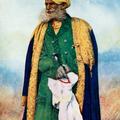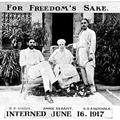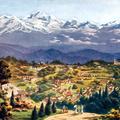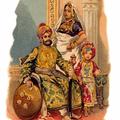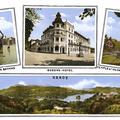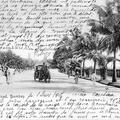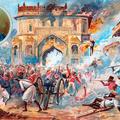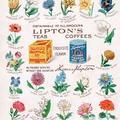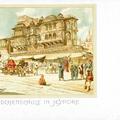Paschendaele Nov. 1914 Cavaliere indienne [Indian Cavalry]
This postcard by the French artist Emile Dupuis honoured the Indian soldiers who fought with the Allies in in what is better known as the First Battle of Ypres in Belgium, an early World War I battleground where some 160,000 German soldiers died.

![Paschendaele Nov. 1914 Cavaliere indienne [Indian Cavalry] Paschendaele Nov. 1914 Cavaliere indienne [Indian Cavalry]](https://www.paperjewels.org/sites/default/files/styles/square_thumbnail/public/slides/indian-soldier_0.jpg?itok=NaOCI3g-)
